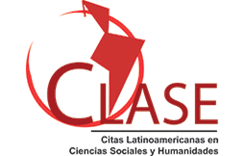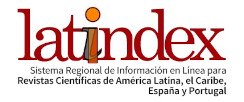WINERIES AND WINEMAKERS WILDLIFE AND WILDLIFE IN THE TERRITORIAL DEVELOPMENT PROCESS: ANALYSIS OF THE GAÚCHA CAMPAIGN DEVELOPMENT
Palabras clave:
Campanha Gaúcha wines, regional development, barriers to development.Resumen
Campanha Gaúcha has attracted the attention of investors, tourists, and researchers due to the production of grapes and wines in the region. This study aims to analyze the contribution of grape growers and wine grape growers in the development of this area. The approach is qualitative, the method is case study, the data collection instrument is interviews, the survey is documentary, and observation is non-participating. Seventeen interviews were conducted: ten with representatives of grape growers and wine grape growers and seven with development agents based on an open questionnaire previously drawn up. It was found grape growing and wine grape growing enterprises have helped generate jobs and income, increase tax collection and tourism, train the workforce, and promote projects with rural settlements, agricultural production and increase of land value. The results also show that some factors have prevented the development, such as the lack of incentives and public policies, high taxes, low wine consumption in Brazil and the fact that Campanha Gaúcha is not acknowledged as a wine producing region. Finally, it should be highlighted that such enterprises have contributed with social, economic, and environmental strategies and are promoting the development of the region.Publicado
2020-03-13
Cómo citar
Bielinski, M., & Troian, A. (2020). WINERIES AND WINEMAKERS WILDLIFE AND WILDLIFE IN THE TERRITORIAL DEVELOPMENT PROCESS: ANALYSIS OF THE GAÚCHA CAMPAIGN DEVELOPMENT. RBGDR, 16(1). Recuperado a partir de https://www.rbgdr.net/revista/index.php/rbgdr/article/view/5382
Número
Sección
Artigos
Licencia
Os autores que tiverem seus trabalhos aceitos e publicados na Revista Brasileira de Gestão e Desenvolvimento Regional estarão sujeitos a política de direitos autorais CC https://creativecommons.org/licenses/by/4.0/.
Em caso de aceite do artigo para publicação, os direitos autorais são automaticamente cedidos para a Revista Brasileira de Gestão e Desenvolvimento Regional.
















